Spatial awareness Community Worksheets for Ages 4-8
5 filtered results
-
From - To
Enhance your child's spatial awareness with our engaging Community Worksheets designed for ages 4-8! These worksheets provide fun, hands-on activities that help young learners develop crucial skills like understanding their surroundings, navigating spaces, and recognizing relationships between objects. From mapping local areas to identifying community landmarks, our interactive resources foster creativity and critical thinking. Perfect for home or classroom use, these worksheets support early childhood educators and parents in nurturing students’ cognitive development while encouraging exploration of their communities. Dive into our comprehensive collection today and watch your child thrive as they build essential spatial skills in an enjoyable way!
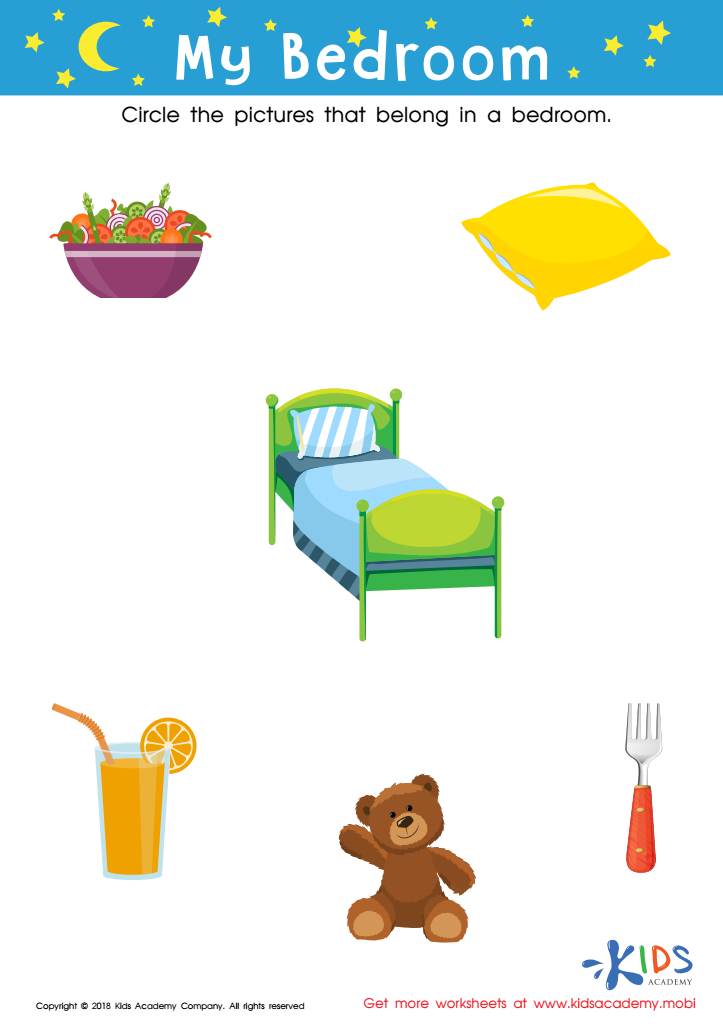

My Bedroom Worksheet
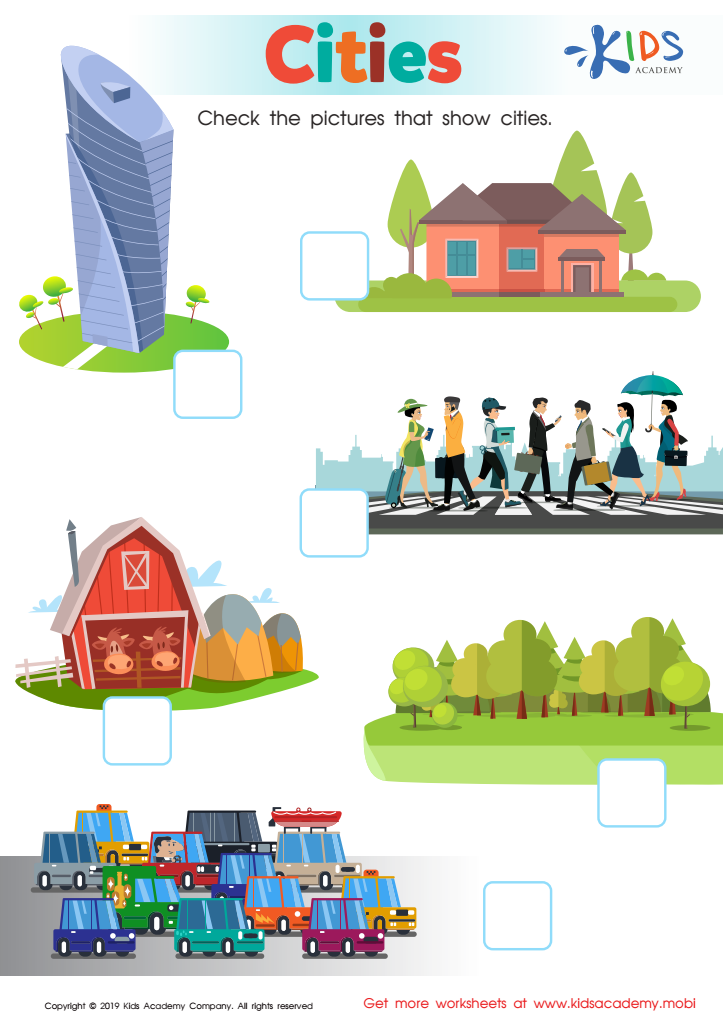

Cities Worksheet
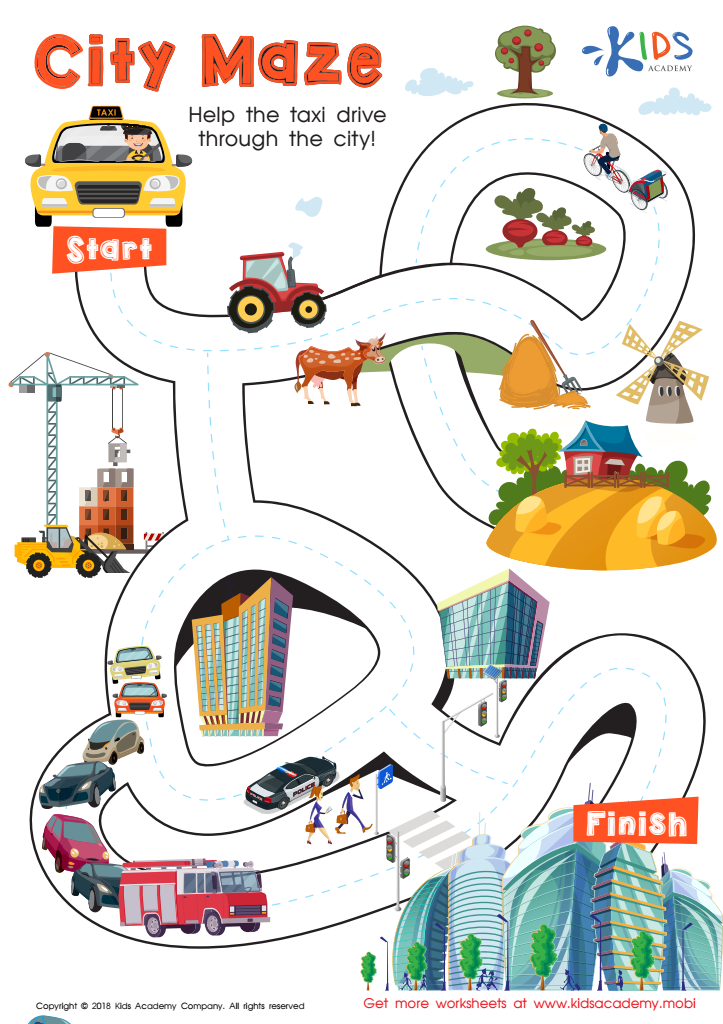

City Maze Worksheet
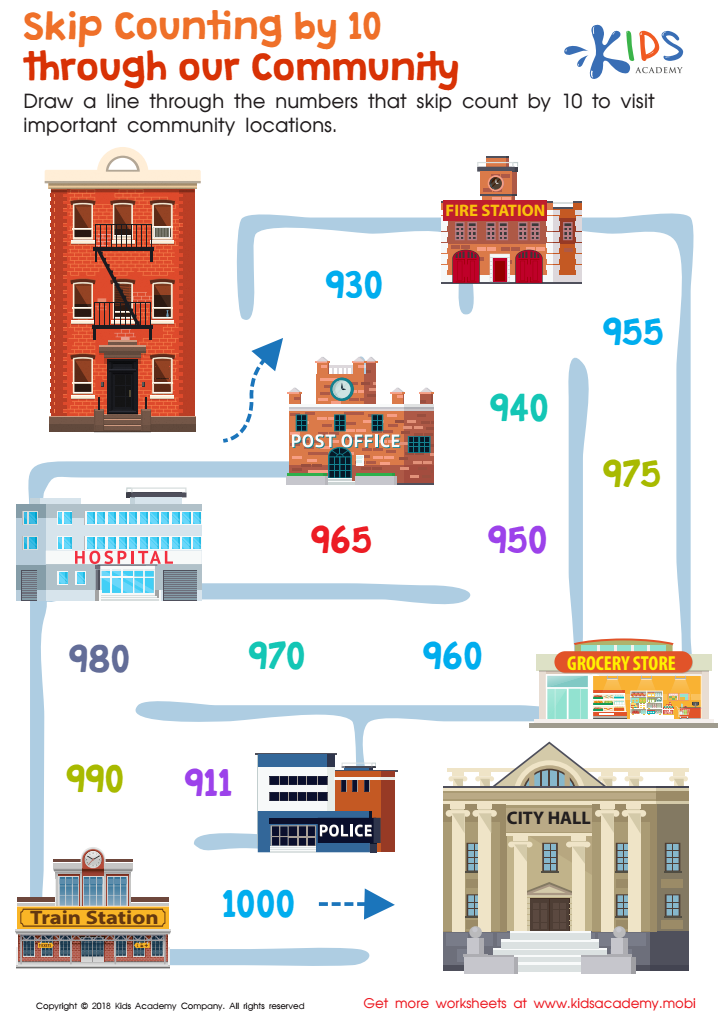

Skip Counting by 10 Through Our Community Worksheet
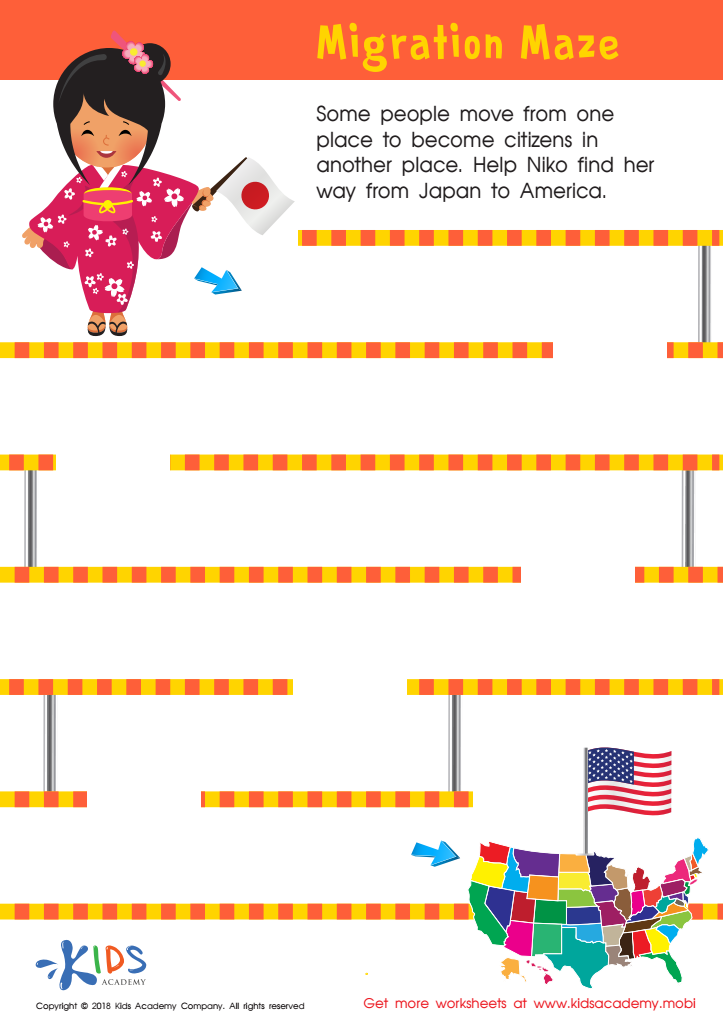

Migration Maze Worksheet
Spatial awareness is a crucial cognitive skill that allows children to understand their surroundings, navigate space, and develop a sense of direction. For children aged 4-8, cultivating spatial awareness is vital, as it impacts their ability to learn math, read maps, and solve problems. Teachers and parents should care about fostering this skill because it enhances critical thinking, creativity, and overall cognitive development.
Community programs centered around spatial awareness offer structured activities that engage young learners in hands-on experiences. These programs often incorporate play, which is essential at this age, transforming learning into an enjoyable endeavor. By participating in spatial awareness activities, children improve motor skills, learn to collaborate with peers, and build confidence in their abilities.
Moreover, early developmental support in spatial awareness can benefit academic performance as children transition into more complex subjects like geometry and algebra. By prioritizing spatial awareness, parents and teachers empower children to become more adept navigators in both their physical environment and their understanding of abstract concepts, laying a strong foundation for their lifelong learning journey. Engaging in community programs also strengthens bonds among families and promotes social skills, reinforcing the importance of a supportive learning environment.

 Assign to My Students
Assign to My Students
















